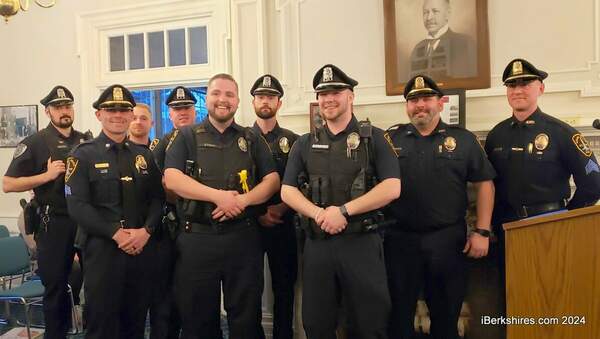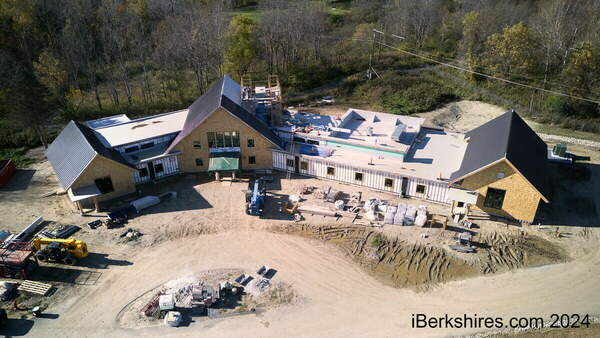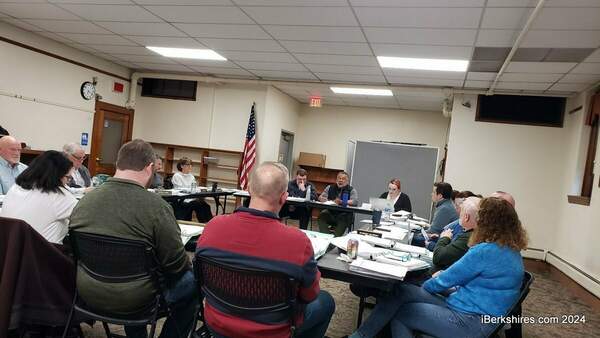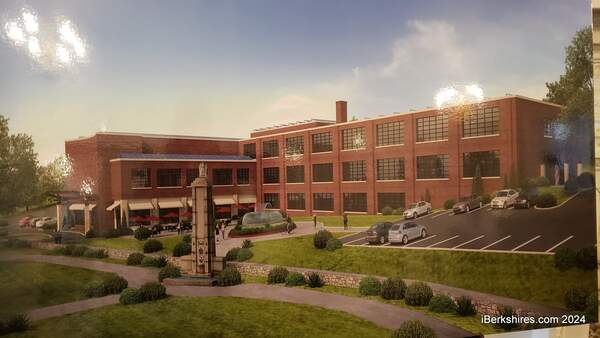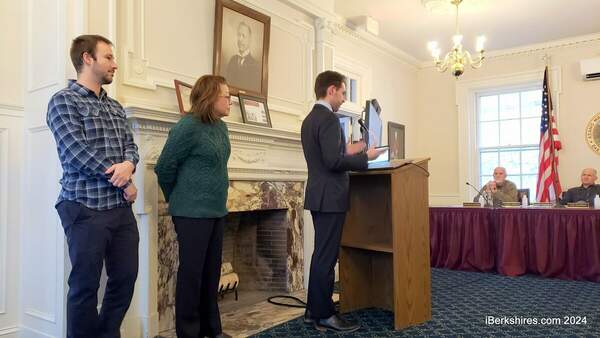Adams ZBA Questions Planners Solar Bylaw Authority
 The Zoning Board on Tuesday discussed a bylaw drafted by the Planning Board that designates where solar technology can be used. The Zoning Board on Tuesday discussed a bylaw drafted by the Planning Board that designates where solar technology can be used. |
ADAMS, Mass. — The Zoning Board of Appeals is lauding the work of the Planning Board in creating a solar bylaw, but not without questioning its authority to do so.
At a workshop meeting Tuesday, the ZBA made its collective opinion clear saying it should be the special permit granting authority. The consensus among committee members is that the ZBA is more qualified to rule on future solar energy installations, qualifying statements by crediting the Planning Board with what they say is work well done.
"I think this work is excellent. I like the breakdown and everything, but I am completely opposed to the fact that [the Planning Board] become the special permit granting authority," member Peter West said. "It's a blatant effort on their part to take that part away from the Zoning Board, so they can control it."
A pdf version of draft can be found here. The efforts come after a controversial solar array on East Road that found the two boards in disharmony over permitting authority.
Currently, the only bylaw under which the Planning Board is the special permit granting authority is in the use of cell phone towers in town. There is language in the board's final draft of the proposed solar bylaw that may make this the second case in which it has permit granting authority. Every other bylaw is under the authority of the ZBA, according to town officials.
Community Development Director Donna Cesan said research of solar bylaws in other towns shows no clear distinction between which municipal entity is traditionally the special permit granting authority.
During a Planning Board workshop in December regarding the solar bylaw, Chairwoman Barbara Ziemba said ensuring her board's granting authority over special permits is the group's biggest concern in creating a solar bylaw. Planner Barbara Moderski said the five members' experience and its status as elected officers are main reasons why the board should authorize special permits instead of the ZBA.
The solar bylaw, the first such measure aimed at regulating the use of solar energy technology, sets standards as to which areas of Adams a private entity can install solar technologies specifically, as well as what forms those installations can take. The Planning Board, in conjunction with the town's Office of Community Development, looked at the commonwealth, the Berkshire Regional Planning Commission and various state municipalities such as Hadley and Easthampton as sources to model its bylaw around.
Standards are set in the drafted bylaw to regulate installations made in certain residential zones, the size of a particular installation and its positioning on building roofs or mounted on the ground.
ZBA member Joseph Greenbush took particular issue with the use of the term "property values" in the bylaw draft, as it pertained to the siting criteria of large-scale, ground-mounted solar energy systems (see Section F-1). Speaking on behalf of the Planning Board's intentions on using this type of language, Cesan said it is precedented in other municipalities, including Williamstown, for neighbors in residential areas shaded from the sun — obstructed by trees, for example — to collaboratively install a large solar energy system in a nearby vacant lot.
"I can use the same argument these folks did up on East Road: it has a negative impact on my property value, because I don't want to look out my window and see a bunch of solar panels," Greenbush said, in reference to a controversial proposal recently permitted by the town's ZBA. "That becomes argumentative. That becomes very subjective. In fact, the wording in there should be removed."
The term property values is also used in the bylaw's statement of purpose, stating that solar energy systems should be integrated into the community "in a manner that minimizes their impacts on the health, safety, and welfare of residents, the character and appearance of the Town and its neighborhoods, on property values and on the scenic, historic, and environmental resources of the Town ... "
Particularly in Residential (R-2) District, ZBA members believe the bylaw could use stricter parameters to identify more clearly in which specific solar energy systems should be eligible for installation.
ZBA member Brian Tenczar said the bylaw should include language regarding drainage, though Cesan said that is part and parcel of a building permit review.
The aforementioned proposal for an energy installation on East Road was approved for a group called 217 East Road Solar Project LLC by the ZBA, after upholding a decision made by then Building Inspector David Pelletier to deny a site plan application for the project and reversing the same decision made by the Planning Board a week later.
In December, a group of residents filed a legal complaint in Berkshire Superior Court against each member of the town's ZBA, along with the East Road project group and property owners of 217 East Road, Jeffrey and Carrie Loholdt.
The creation of a solar bylaw also coincides with the recent designation of Adams as a participant in the state's Solarize Mass program — a solar incentive program for local home and business owners — and its installation of a 1.1 megawatt solar array on a former landfill on East Road last year.
A public hearing regarding the specifics of the solar bylaw will be made on Monday, Feb. 10, at Town Hall. If the draft is approved by the Planning Board, it must then pass the approval of town meeting before gaining state approval and its enactment.
A special town meeting will be scheduled for March, according to town officials.
Tags: bylaws, solar array, ZBA,

